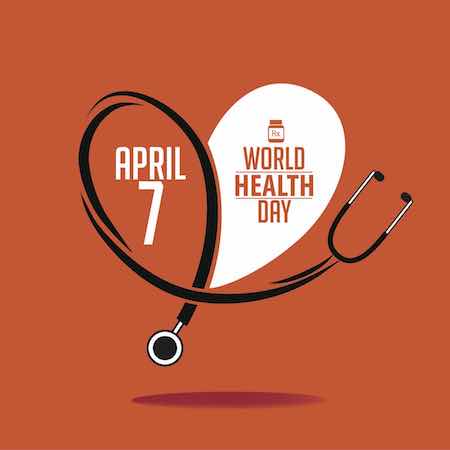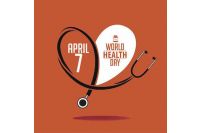

Today, April 7th, is World Health Day. For those of us in the caring professions, today is an opportunity to take a step back and think about our own self-care.
People enter the caring professions for a variety of reasons, but usually at the top of the list is the desire to help others. However, in our desire to help others it’s sometimes easy to forget that the quality of the care we can offer, and even our ability to continue offering that care, depends on remaining healthy ourselves.
There is a lot we could say about self-care, ranging from proper nutrition to exercise. But in today’s post I want to share about an aspect of self-care that generally receives less public attention, perhaps because it can’t be advertised for marketing purposes.
How to Feel Like a Lottery Winner Without Winning the Lottery
What if I told you there is an activity you can do for free that dramatically increases your levels of physical and emotional well-being? What if I also told you that the mental and emotional results of this activity, when measured on tests for psychological well-being, are comparable to a person winning a lottery jackpot of around $200,000?
It gets even better. This activity I’m referring to doesn’t involve taking any drugs or doing anything unhealthy. In fact, the activity is actually good for you. Are you ready?
The activity I’m talking about is sleep.
We all know that sleep is important, but what many people don’t realize is just how important sleep is for self-care. Many people also don’t realize that there are a number of specific steps a person can take to improve the quality of their sleep. In a future blog post we’ll explore some of the steps for increasing sleep quality, but for now let’s consider how a good night’s sleep is so crucial for physical, mental, psychological, and emotional health.
Why Sleep is Fundamental for Self-Care
Researchers at the University of Warwick spent four years studying the sleep patterns of more than 30,500 people. The research, which was published last month in the journal Sleep, found that getting good quality sleep is comparable to the mental and physical benefits associated with winning $200,000 in the lottery.
Dr Nicole Tang, from Warwick’s Department of Psychology, found that what is more important than the hours someone spends asleep is the quality of their sleep. Working to increase sleep quality over time is directly correlated with well-being and improved scores on the General Health Questionnaire (GHQ), which is used by health professionals to monitor psychological well-being. The people who were surveyed showed a 2-point change in the GHQ after improving their sleep – an increase equivalent to those who won the lottery or those who took an eight-week course in mindfulness-based cognitive therapy.
The darker side of the research is that lack of good sleep is correlated with worse medical and emotional states in addition to a decrease in one’s ability to perform everyday activities.
Cheap Method for Raising Well-Being
Science Daily summed up the recent research:
Dr Tang’s research proves that improving the quality and quantity of sleep amongst the population – as well as discouraging the use of sleep medication – is an effective, simple and cheap method of raising the health and well-being of society as a whole.
It seems counterintuitive that something as ordinary as sleep could bring such enormous benefits. As humans, we tend to value things that are hard, expensive, or unusual. Thus, we instinctively expect that something like winning the lottery, or taking an eight-week mindfulness course, will bring enormous benefits. By contrast, sleep is so ordinary that we take for granted the benefits it brings.
Today, April 7th, is a time to turn over a new leaf and begin prioritizing your sleep. To help, we’ll be using a future post to share some specific steps you can take for improving your sleep quality.



